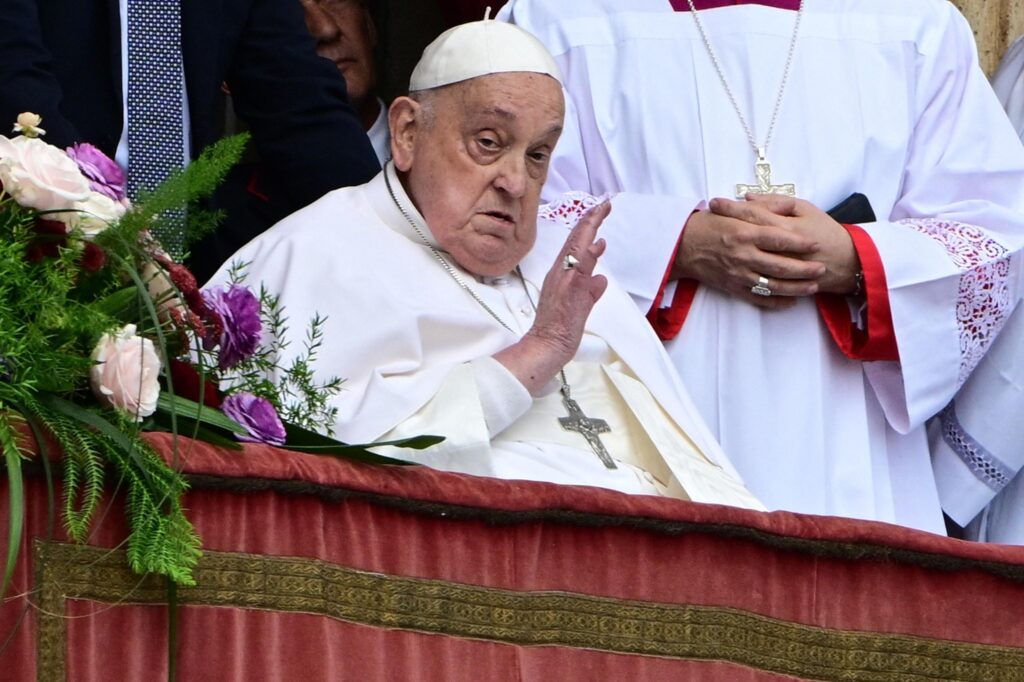The Convergence of Papacy and Politics: Understanding the Intersection of Faith and Governance
In today’s world, where the boundaries between religious beliefs and political governance often intertwine, the papacy’s influence on global political discussions is under increasing examination. Pope Francis has emerged as a prominent figure advocating for various critical issues such as social equity and environmental sustainability, extending his voice well beyond the confines of Vatican City. As church teachings confront modern governance challenges, the repercussions of papal pronouncements can resonate worldwide, impacting both policymakers and millions of adherents. This article explores the complex interplay between ecclesiastical authority and political power, highlighting recent examples where papal moral guidance has either conflicted with or supported secular agendas. Through this analysis, we aim to illuminate how profoundly the papacy affects both national policies and international relations in a relationship that remains both essential and contentious.
Papal Impact on International Politics: Harmonizing Faith with Governance
The convergence of faith with politics is a landscape that has historically been navigated by popes, positioning the Vatican as an influential entity in global affairs. With its moral clout and extensive connections across nations, the Pope can sway various geopolitical matters ranging from humanitarian crises to climate action initiatives. In recent times, Pope Francis has underscored dialogue’s significance while promoting solidarity among nations; he advocates for governance approaches that prioritize humanity over borders. His appeals for social justice alongside environmental responsibility resonate not only within Catholic communities but also among secular leaders globally.
Nevertheless, this blending of theology with politics can lead to friction when papal messages challenge dominant political ideologies. For example, differing responses to migration policies have ignited debates across Europe and North America; some leaders embrace his compassionate stance while others resist it vehemently. The Pope’s involvement in peace negotiations within conflict-ridden areas further highlights his influence but also raises questions about how effective religious leadership can be amid political strife. As Vatican diplomacy continues navigating these intricate waters, it exemplifies an ongoing effort to reconcile spiritual convictions with statecraft realities.
Addressing Controversy: The Vatican’s Influence on Political Dialogue
Historically speaking, the Vatican has played a significant role in shaping political discourse while carefully balancing its spiritual leadership against secular engagement demands. This duality often sparks discussions regarding whether it is appropriate for a religious institution to intervene in governmental affairs at all. Notable instances where papal voices have resonated on global platforms include:
- Advocating Social Justice: The Vatican consistently addresses pressing issues like poverty alleviation, immigration reform, and climate change advocacy—urging world leaders toward more humane policy decisions.
- Mediating Peace Efforts: The Catholic Church actively participates in facilitating peace talks aimed at resolving conflicts threatening international stability.
- Championing Human Rights: The Pope frequently stands up for marginalized groups’ rights globally—positioning the Church as an ethical guide within international relations.
Despite their significance these interventions often stir controversy since not all politicians welcome such influences from religious figures. Critics argue that these engagements may compromise governmental neutrality by creating divides between faith-based perspectives versus practical politics—a sentiment echoed by recent analyses linking specific papal statements directly to shifts in public policy trends worldwide.
| Year | Issue Addressed | Papal Statement/Action | Pertinent Outcomes |
|---|---|---|---|
| 2015 | Sustainability Initiatives | “Laudato si'” encyclical publication | A surge in global attention towards eco-friendly policies emerged thereafter. |
| 2016 | Migrant Crisis Response | A plea for empathy towards refugees made publically known td >< td > Shifts observed within several European countries’ immigration strategies . td > tr >< tr >< td > 2020 td >< td > Racial Justice Advocacy td >< td > Strong condemnation issued against systemic racism td >< th > Global protests sparked alongside reviews undertaken regarding existing policies . th > tr > |
Looking Ahead: Recommendations for Collaboration Between Church & State Entities
The evolving dynamics between faith-based organizations like churches—and government institutions necessitate establishing clear protocols guiding their interactions moving forward . Stakeholders should prioritize developing frameworks fostering constructive dialogues rather than confrontational exchanges through initiatives such as : p >
- < strong > Interfaith Dialogues :< / strong > Regular gatherings allowing diverse religious representatives discuss shared concerns relevant politically emphasizing collaboration over division .< / li >
- < strong > Policy Education Workshops :< / strong > Providing training sessions educating clergy about governmental processes could demystify roles each party plays enhancing mutual understanding .< / li >
- < strong > Joint Community Projects :< / strong > Collaborative efforts tackling societal challenges serve bridging gaps showcasing positive outcomes achieved without partisan biases involved.< / li >
< / ul >Additionally , vigilance must remain paramount concerning potential politicization surrounding belief systems ; adherence ethical guidelines respecting separation powers advisable here too ! Recommended approaches include : p >
th > th /> < strong Transparency /> < strong Inclusivity /> < strong Accountability /> Conclusion: A New Era at Faith-Politics Intersectionality Awaits Us!
As we navigate through increasingly complex intersections involving spirituality intertwined deeply into realms governing society today , it’s evident how pivotal roles played by figures like Popes continue evolving amidst contemporary challenges faced globally! From climate change activism advocating social equity addressing human rights violations —the impact exerted upon broader discourses remains substantial even amidst rising tensions witnessed recently! Moving forward , dialogues occurring between pontiffs & politicians will likely intensify reshaping landscapes ecclesiastical civic alike! Stay tuned here at NBC News—we’ll keep you updated providing insightful analyses reporting developments surrounding this intricate relationship where faith converges power continuously unfolding before us!
